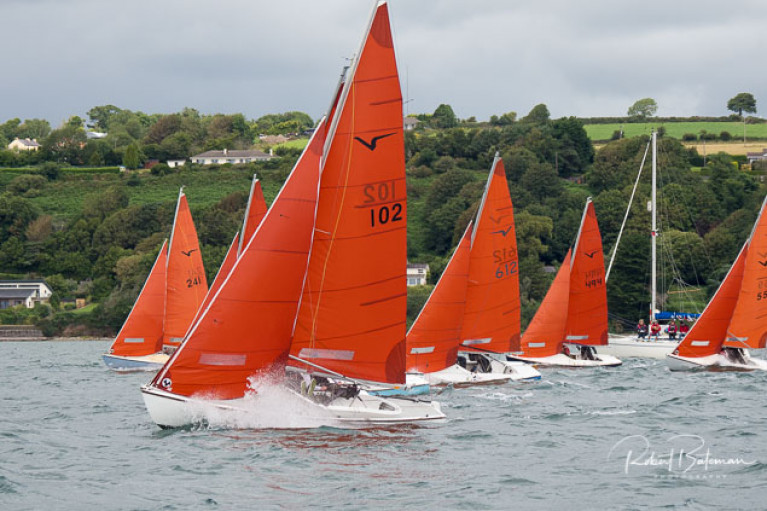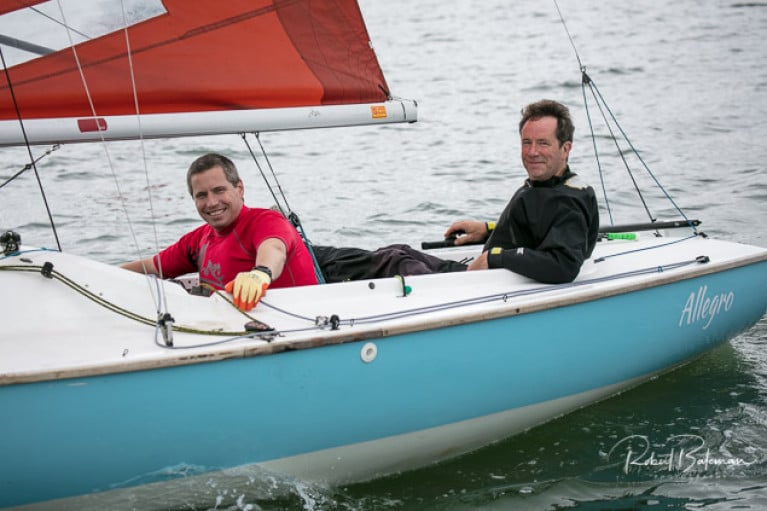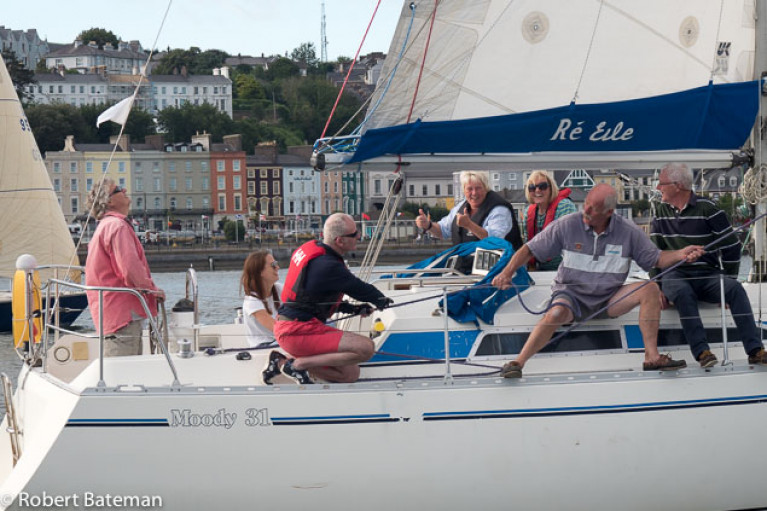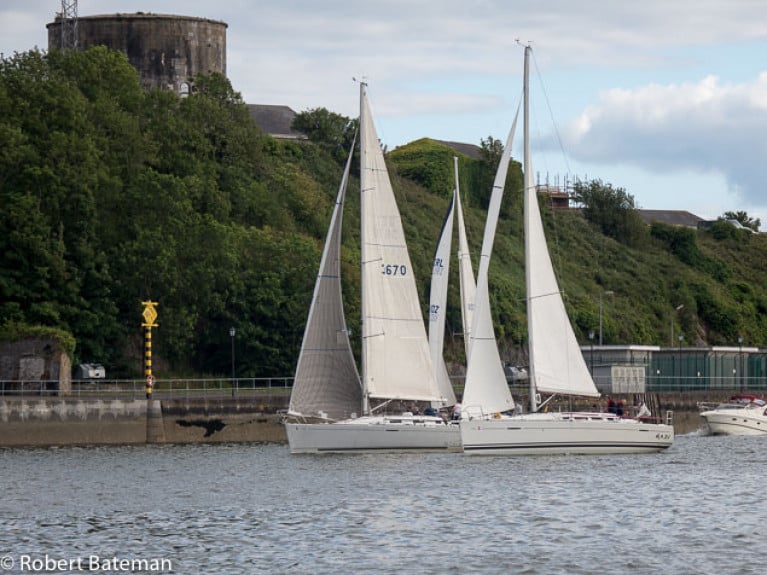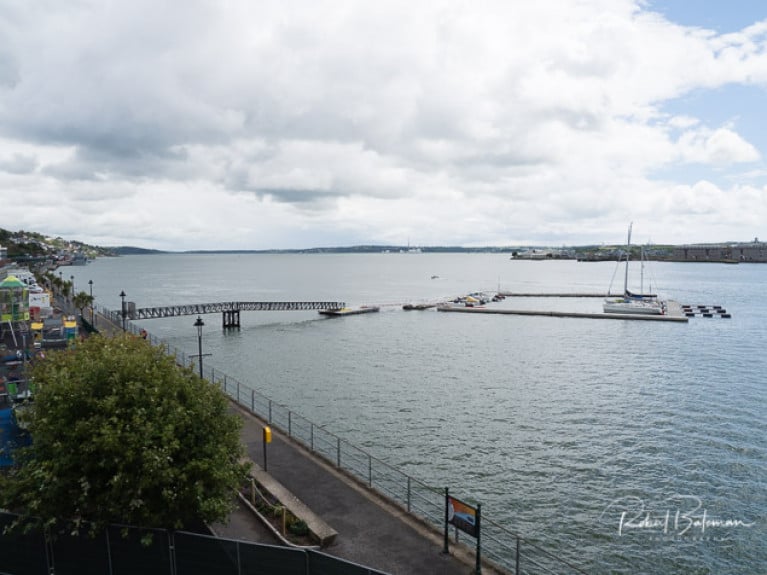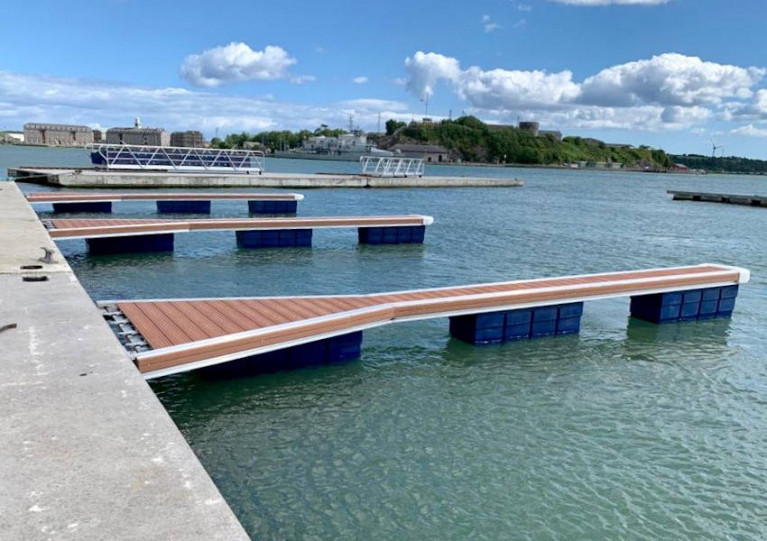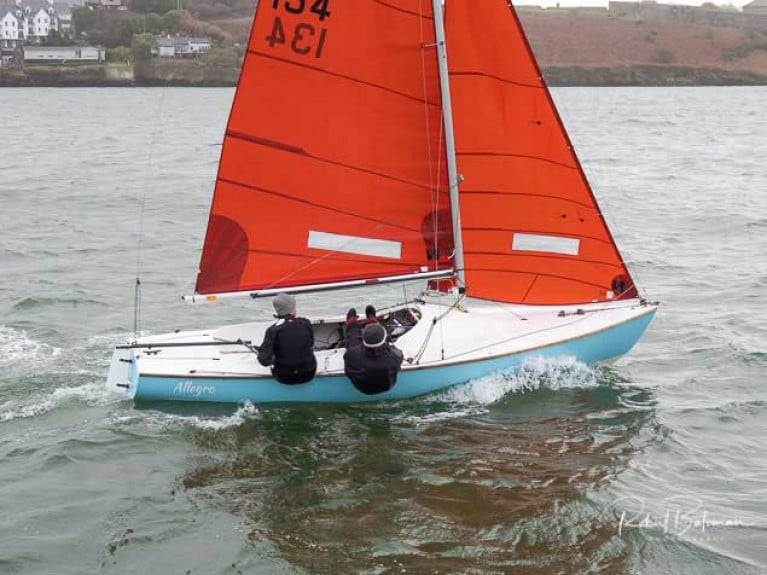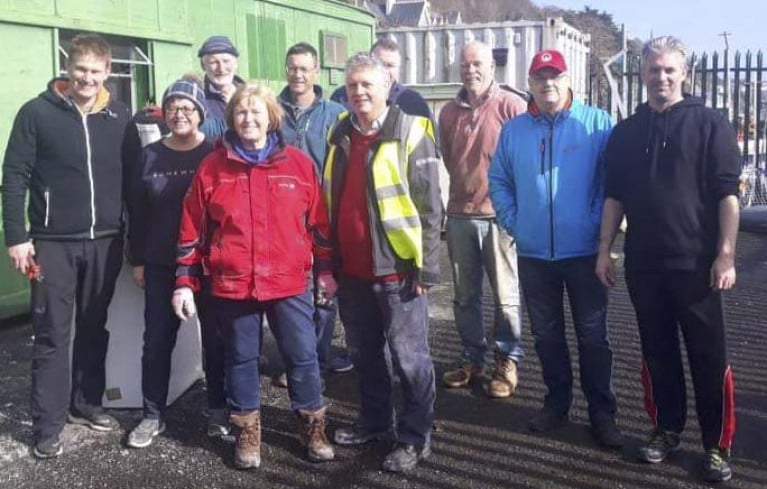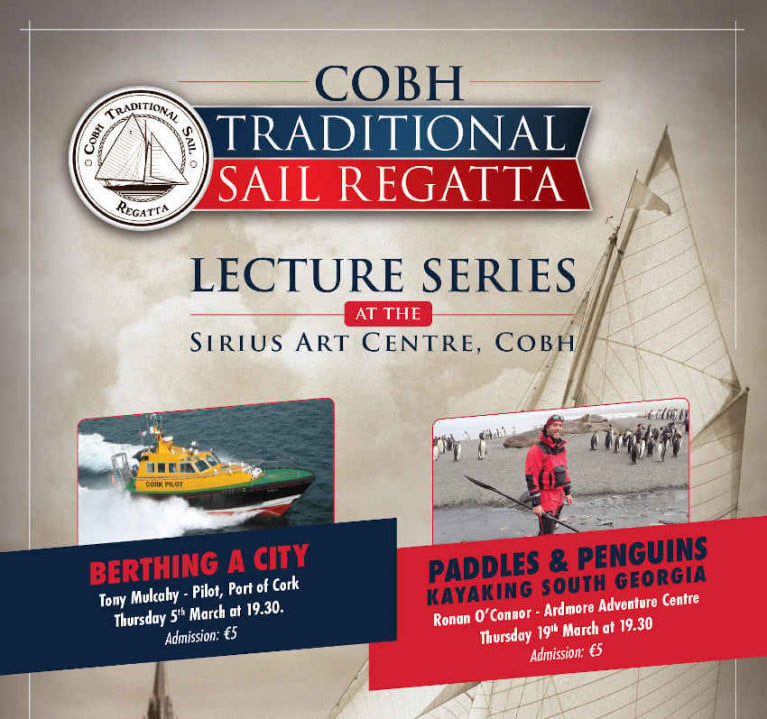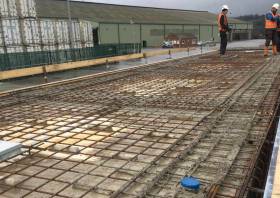Displaying items by tag: Cove Sailing Club
Kinsale overnight leader Colm Dunne at the helm of Allegro held off a strong Northern Ireland Challenge to win the Squib Southern Championships at Cove Sailing Club this afternoon.
As reported earlier, 13 boats contested the championships in Cork Harbour but no one was able to overhaul Dunne who counted three race wins on the windward-leeward courses.
Second place after five races sailed in the one-design keelboat competition went to Royal North of Ireland's Gordon Patterson. Third place went to Patterson's Belfast Lough club-mate Peter Wallace, skipper of Toy for the Boys.
Results are here
Bob Bateman's Day Two Photo Gallery below
Colm Dunne and Rob Gill's Allegro from Kinsale Yacht Club leads the 2020 Squib Southern Championships after three races sailed in Cork Harbour yesterday.
Scroll down for Bob Bateman's photo gallery of Day one racing below.
The Cove Sailing Club hosted event is the first on design championships of the season and was sailed over windward-leeward courses on the Eastern Bank of the Harbour.
13 are competing including three Northern Ireland entries and a strong seven boat turnout from Kinsale.
Racing so far has been in light to medium westerly breezes.
Royal North of Ireland's Peter Wallace, on five points, trails Dunne by two points with Dunne's club-mate Ian Travers five points off the lead.
The Championship resumes this morning with a first gun at 10.55
Results are here
The first major Class championships this season and the first in Cork Harbour will go ahead at Cove Sailing Club next weekend. The Squib Southerns will be based at the new Cove SC clubhouse and marina at Whitepoint.
The event and the marina are a big boost for the harbour town. Cobh has long-needed facilities for visiting boats. Several previous attempts to build a marina there failed. Cove Sailing Club, which celebrated its centenary last year, undertook its own project. It was not without difficulties and financial pressures which did create some internal club difficulties. At one stage another club, the Great Island Sailing Club, was formed and organised cruiser racing while remaining club members devoted their attention to getting the marina built. They succeeded, the new marina is now in operation, the clubs have re-united, with Great Island ceasing activities and members back in Cove Sailing Club which is a busy place at present.
 Race Officers get the first race away from Cove Island Sailing Club's new marina pontoons Photo: Bob Bateman
Race Officers get the first race away from Cove Island Sailing Club's new marina pontoons Photo: Bob Bateman
There is also a new clubhouse and dinghy sailing is resuming, with training courses also going ahead.
Kieran Dorgan is Cove Sailing Club’s Commodore and is my Podcast guest this week, discussing the developments and the economic boost which the marina will provide to the town of Cobh. I started by asking him about the Squibs Southern Championships next weekend, with racing on Saturday and Sunday, July 25 and 26:
Cove Sailing Club’S first evening league of the season was won by Commodore Dorgan’s Altair, a First 36.7 David Doyle’s Sigma 33, Musketeer, was second and Norman Allen’s Impala, Nadia, third. Twelve yachts raced.
Cove Sailing Club Race Starts From New Marina (Photos HERE!)
The first cruiser race of the Cove Sailing Club season was started from the brand new Cove Marina in Cork Harbour on Friday, July 10.
Cove Race Officer Brian Curtis got 12 boats away using the marina and the flagstaff at the Naval Base on Haulbowline as a transit.
A downwind start saw most of the fleet hug the Spit Bank to dodge worst of the tide.
The course then featured a run down to Cuskinny 13 mark then out to harbour to 12 before a short beat and a fetch to the finish line.
As Afloat reported previously, Cove Saling Club’s new marina pontoons were put to immediate use with yachts and motorboats occupying the new berths since the opening up of sailing activity on 8th June.
First race photos by Bob Bateman below
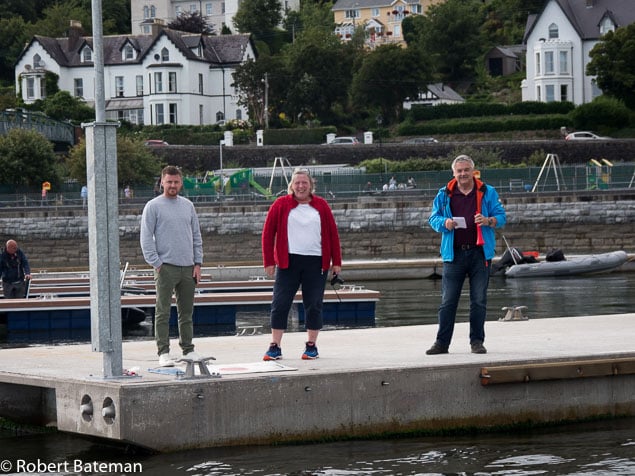
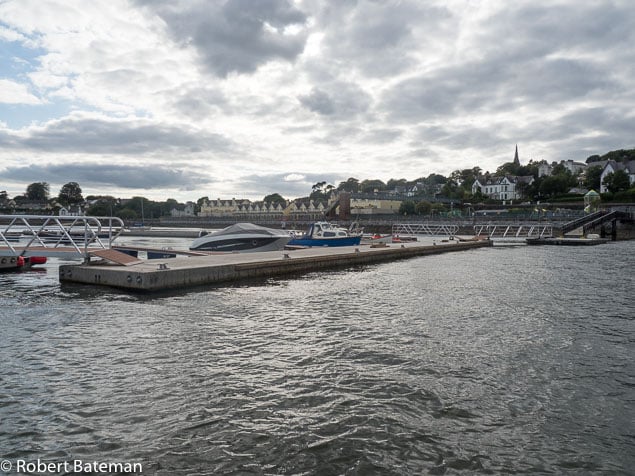
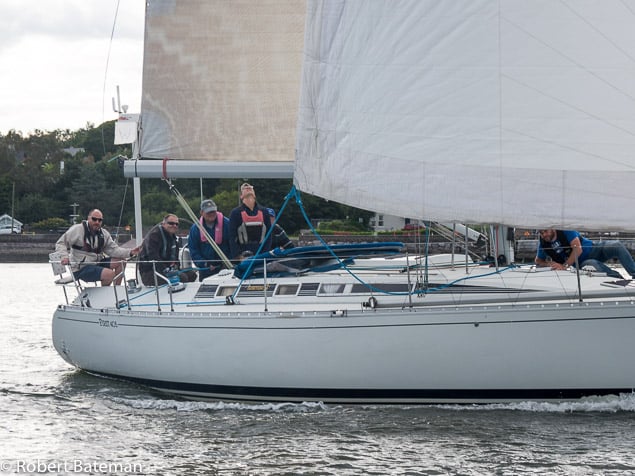
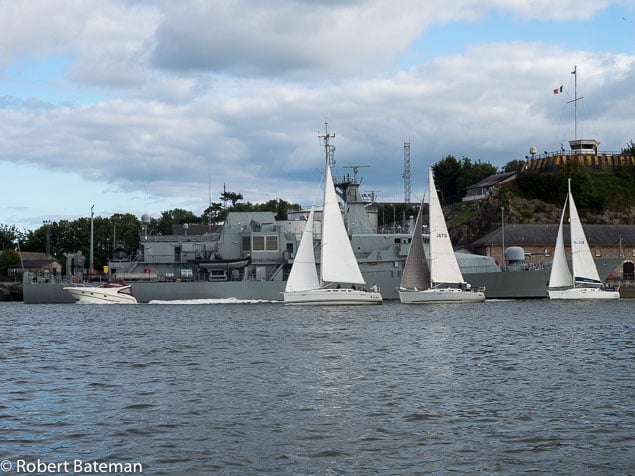
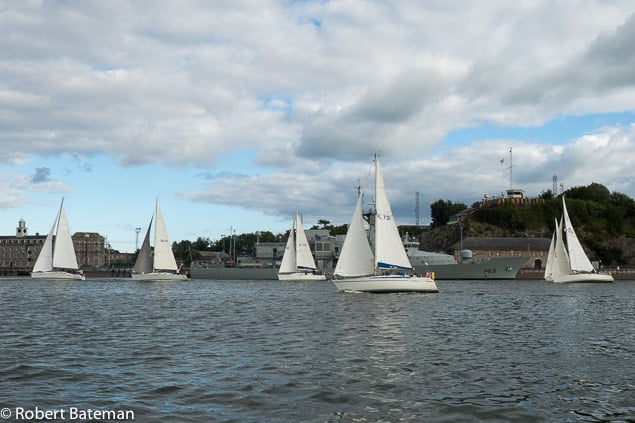
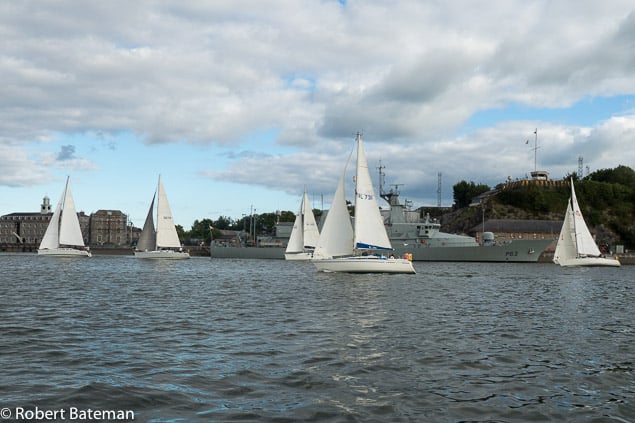
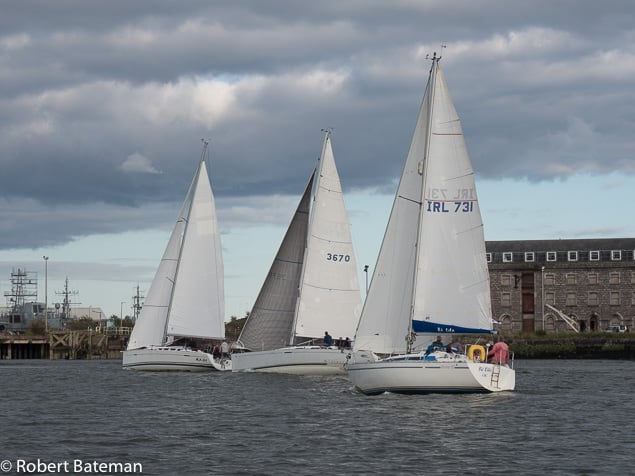
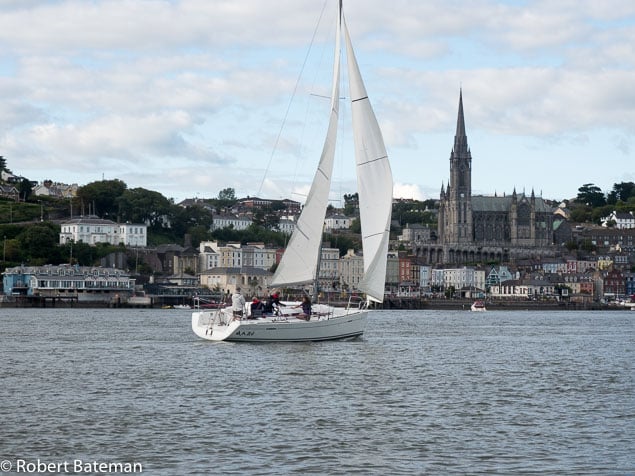
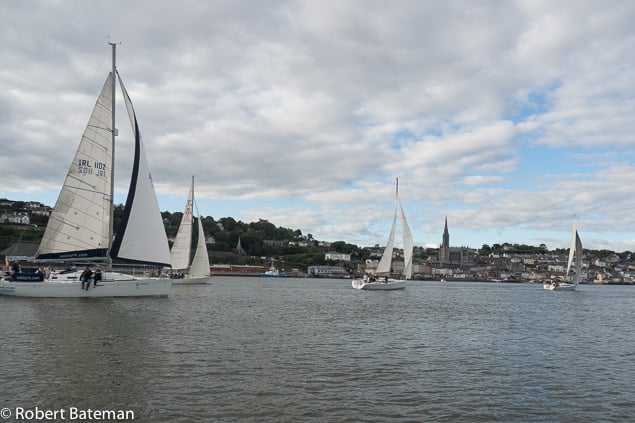
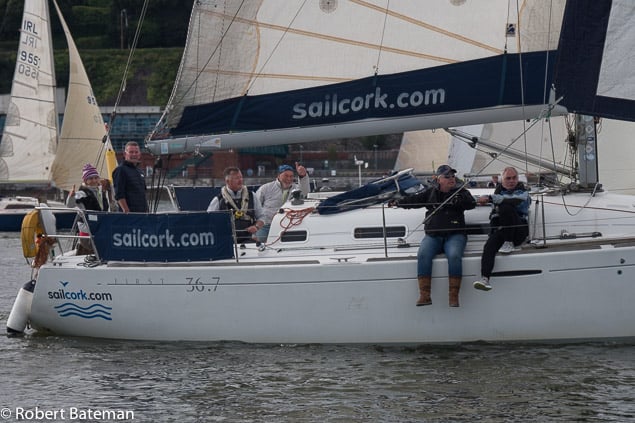
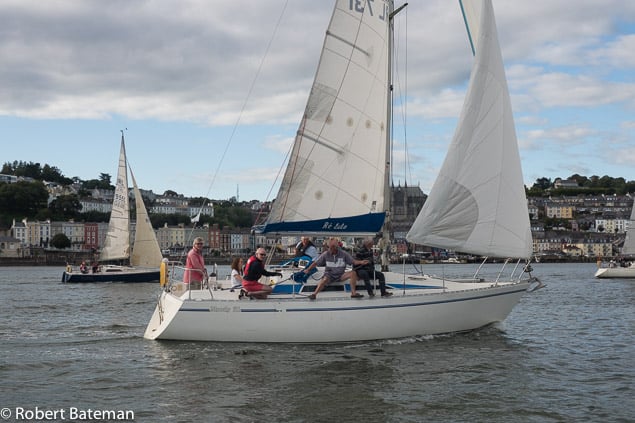
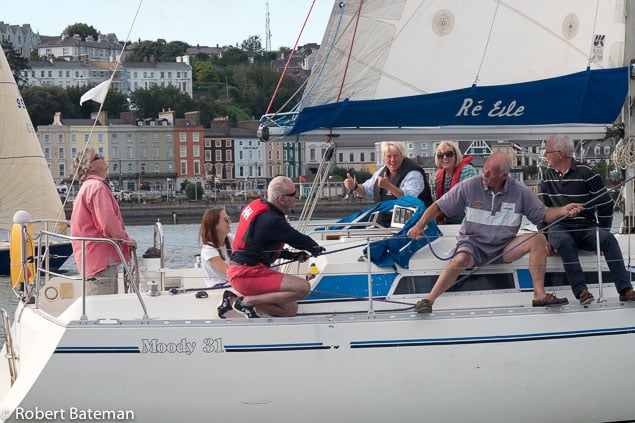
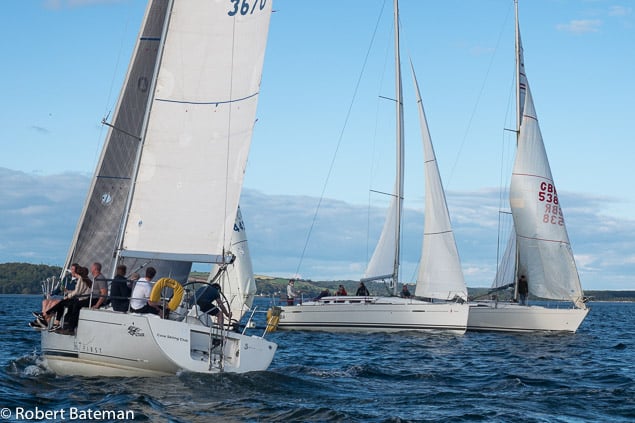
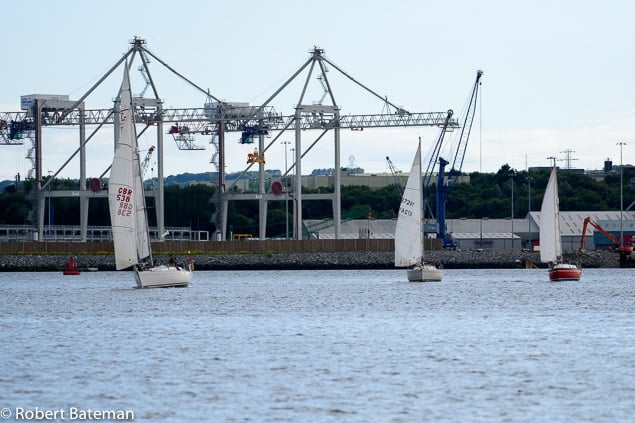
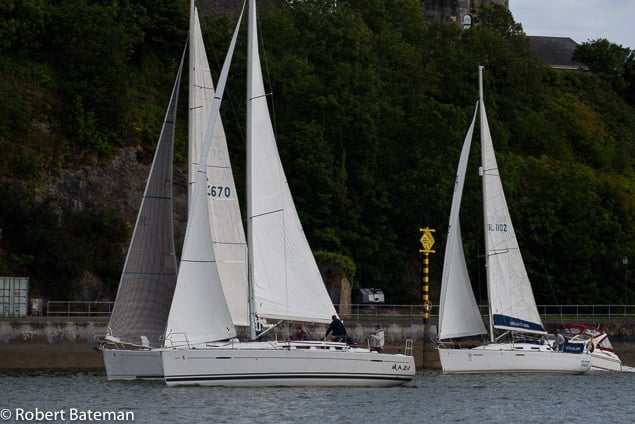
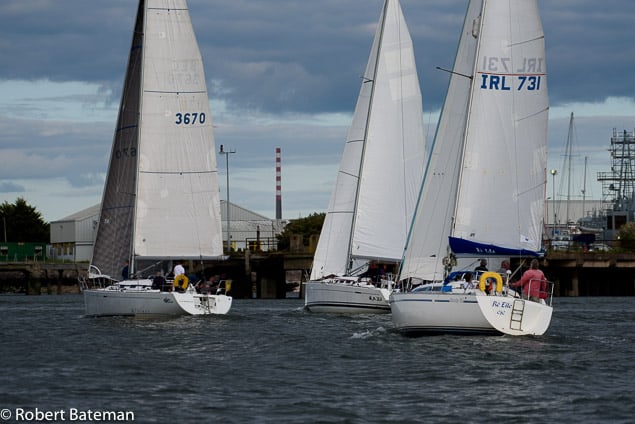
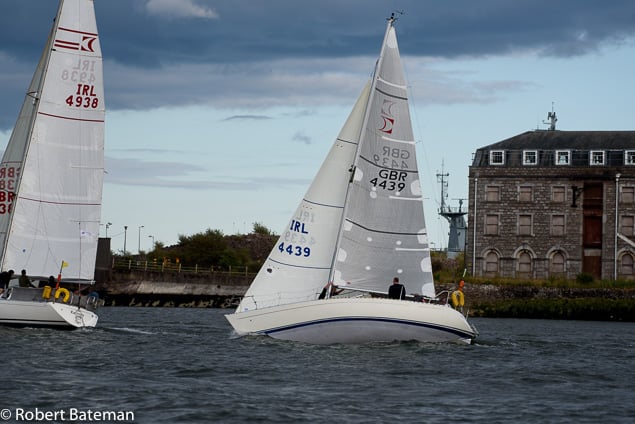
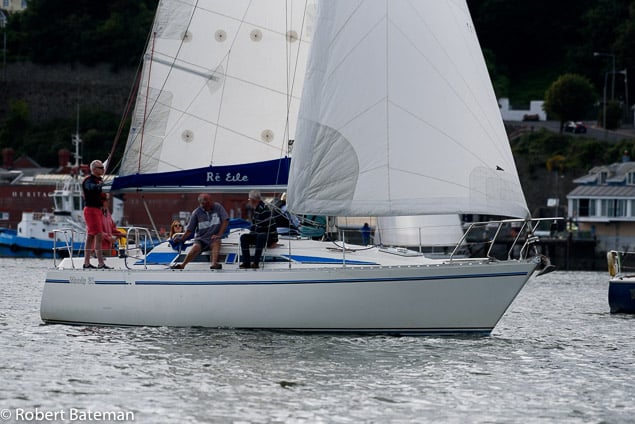
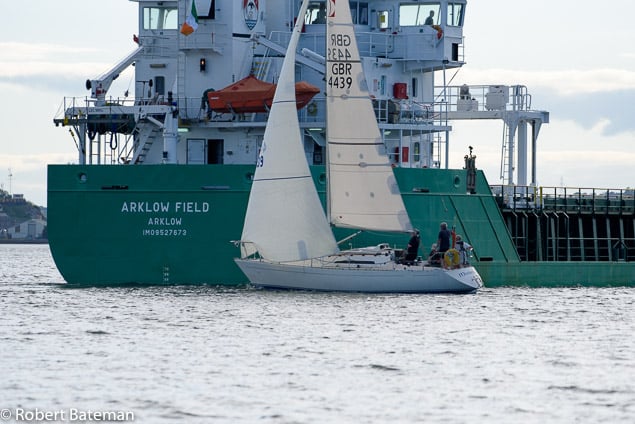
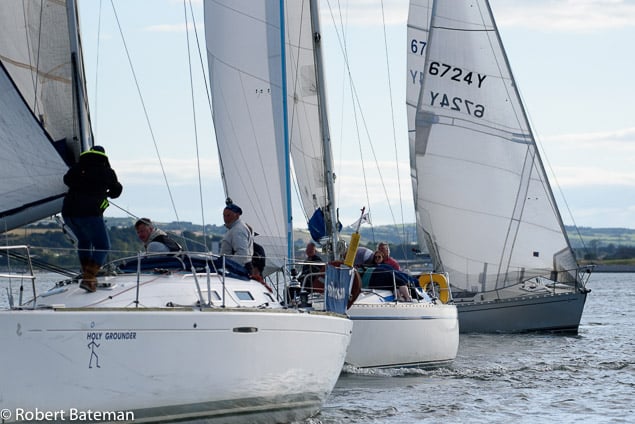
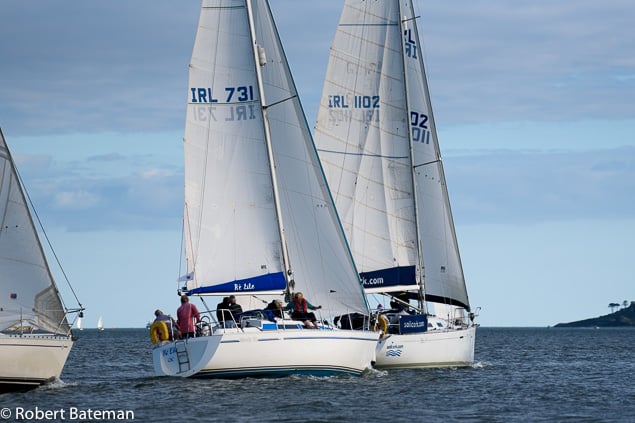
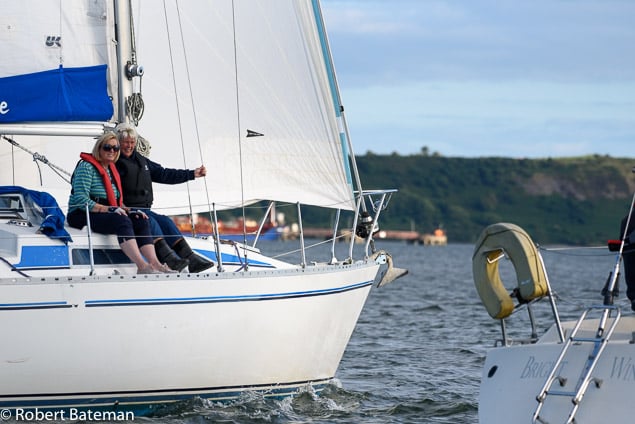
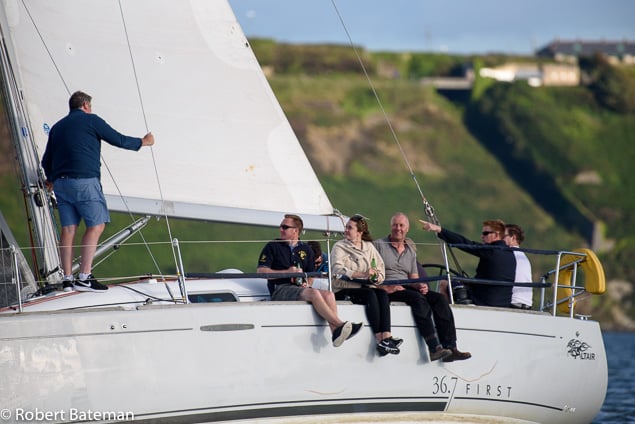
Cove Saling Club’s brand new marina pontoons have been put to immediate use in Cork Harbour with yachts and motorboats occupying the new berths since the opening up of sailing activity on 8th June.
Coronavirus restrictions delayed the original expected completion date in April, but the berthing pontoons are fully assembled and connected to the gangway that was installed earlier this year.
 New Cove Marina
New Cove Marina
As previously reported on Afloat.ie, the Cork Harbour club has also been working on upgrades to its dinghy park facilities including a new meeting room, office and kitchen at Whitepoint in Cobh.
 Cove Sailing Club dinghy parking facilities Photo: Bob Bateman
Cove Sailing Club dinghy parking facilities Photo: Bob Bateman
Further Progress On New Cove Sailing Club Marina
Colm McDonagh has shared images of further progress on Cove Saling Club’s new marina pontoons in time for the opening up of sailing activity from tomorrow, Monday 8 June.
Coronavirus restrictions delayed the original expected completion date in April, but the berthing pontoons are now well into assembly before connection to the gangway that was installed earlier this year.
As previously reported on Afloat.ie, the Cork Harbour club has also been working on upgrades to its dinghy park facilities including a new meeting room, office and kitchen at Whitepoint in Cobh.
What a fantastic addition the @CoveSailingClub marina will be. Really coming together now. @CobhTourism @CobhHarCham @CobhTidy @hashtagcobh2020 @AfloatMagazine @jonathanlee0312 @KENNYTCORK @CathalRasmussen @eucoolroute @royalcork @deshocks @PortofCork pic.twitter.com/cq6n8Gi2gJ
— Cobh Gifts by CMcDonaghPhoto (@C1McD) June 5, 2020
It’s expected the club will shortly provide an update on summer sailing events and courses upon the latest relaxing of restrictions — which allow members within the same county or 20km to visit, and for bigger groups to sail while observing social distancing.
Two Cork Sailing Clubs Plan Return to ‘Limited Racing’
The problem for resuming normal yacht racing is the current limitation on household crewing of boats only. Because the majority of yachts are not crewed solely by one household, racing is impossible under current restrictions. This is reflected in the intentions of two Cork clubs to resume limited racing, for household-crewed boats only, reports Tom MacSweeney.
Kinsale Yacht Club's limited form of club sailing
Kinsale Yacht Club is proposing to start what Club Commodore Mike Walsh describes as “a limited form of club sailing next Wednesday (June 10) but only for family/ household boats living within 20kms of the club marina. This would include Squibs, Dragons, Cruisers.”
He has told members that this racing “will be limited to white sail only for cruisers.
“All activities are limited to household units. If there is sufficient interest we will continue this league or series of races until July 20. Starting and finishing will be from the club marina.”
The club intends to start its Junior Sailing/training course on July 6, which is likely to run to the end of August in a restructured schedule. The course is fully booked. Further applications will be put on a waiting list.
 Loch Greine, owned by Tom, Donal and Declan O'Mahony sailing past Roches Point Lighthouse Photo: Bob Bateman
Loch Greine, owned by Tom, Donal and Declan O'Mahony sailing past Roches Point Lighthouse Photo: Bob Bateman
 Cruiser racing in Cork Harbour Photo: Bob Bateman
Cruiser racing in Cork Harbour Photo: Bob Bateman
Cove Sailing Club's single-handed or single household sailing
Cove Sailing Club in Cork Harbour says it is aiming to resume sailing at the start of July, “assuming government restrictions are lifted at the end of June.”
This also will only be for “single-handed or single household sailing.”
 Cove Sailing Club Headquarters Photo: Bob Bateman
Cove Sailing Club Headquarters Photo: Bob Bateman
The club says it will not be able to run “a full programme of training courses similar to the past 13 years, but will endeavour to plan for a return to sailing courses as soon as safely possible.”
One Less Sailing Club is Good News for Cork Harbour
Cork Harbour has lost a sailing club, which is actually good news for the sport.
If that seems questionable statement, it is not because it brings back together the members of Cove Sailing Club and the Great Island Sailing Club, after a split over ‘differences of attitude and opinion’ as they were described, which occurred due to difficulties in the development of the club’s marina at Whitepoint, just outside the town.
As a result, members who left Cove SC in 2018 set up Great Island Sailing Club to protect and continue, they said, sailing in Cobh. (The club name is spelt differently from the town name).
As the marina project as being progressing satisfactorily and now installation is underway, negotiations between the clubs have been going on. With a positive outcome, Great Island Sailing Club held an EGM to discuss re-joining Cove Sailing Club and a motion to do so was passed unanimously.
“We are looking forward to having a stronger bigger club in Cork Harbour and are very excited with plans for the 2020 season,” said Johanna Murphy, GISC’s Commodore. She confirmed that GISC no longer exists and its members have rejoined Cove SC.
A joint statement from the two clubs said that Cove SC, which celebrated its centenary last year, will continue the Cork Harbour Combined League, which GISC was instrumental in initiating for Cruisers along with the RCYC and Monkstown Bay SC. The Cork Harbour to Dunmore East Race, which was inaugurated last year, will be run by Cove SC at the end of May. It will also be running club events such as the Cove at Home, Cobh People’s Regatta and the Cobh to Blackrock Race.
“The rejuvenated evening dinghy racing will continue this year on Wednesdays throughout the summer as well as the continuation of junior dinghy training. We are also pleased to be hosting the finish of the Dun Laoghaire to Cobh Race (formerly known as the Kingstown-to-Queenstown Race) in association with the National Yacht Club,” said the statement.
Johanna Murphy will continue as Commodore of the South Coast Offshore Racing Association. She is also a member of the Irish Cruiser Racing Association’s board and has been appointed to the Cruiser committee of Cove SC.
On my podcast this week I’m joined by Damian Ahern from Cove Sailing Club’s Committee and who is also a member of their Asset Management Team which is overseeing the new marina installation and other projects within the club. We discuss these developments.
• Listen to the Podcast below.
New Lecture Series Kicks Off In Cobh Next Week
A new lecture series in the run-up to the Cobh Traditional Sail Regatta kicks off next week at the Sirius Arts Centre in Cobh with a talk on the key role of marine pilots in busy city docks.
Port of Cork pilot Tony Mulcahy will give his lecture on ‘Berthing a City’ next Thursday 5 March at 7.30pm.
And a forthright later, Ronan O’Connor of Ardmore Adventures will talk ‘Paddles & Penguins: Kayaking South Georgia’ on Thursday 19 March from 7.30pm.
Admission for each lecture is only €5.
Excitement At Progress On Cove Sailing Club’s New Marina
Cove Sailing Club in Cork Harbour has expressed excitement at progress being made on its new marina.
Planning approval was granted this past May for the marina at Whitepoint, scaled down from a larger scheme that faltered in the planning stages some years ago.
Contracts were signed last month for the 30-berth facility designed by Byrne Looby from their Cork office.
And construction began at the end of October, with the breakwaters recently cast across the water at Ringaskiddy.
“This is a huge step forward in the overall development process and it’s great to see the project progressing and coming together,” said the club, which expects the marina to be completed and open well in advance of the 2020 sailing season.
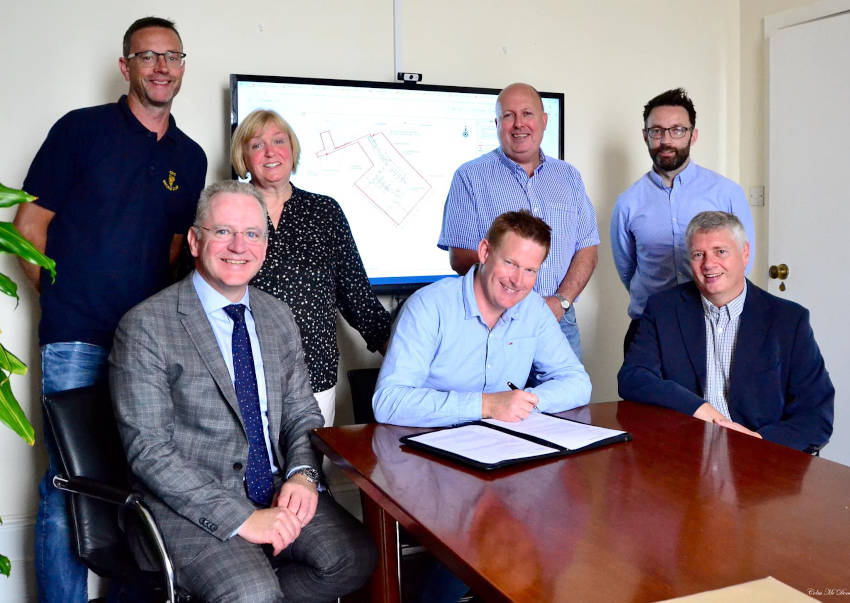 Richard Marshall, Anne Ahern, Micheál O’Driscoll and Damian Ahern, committee members of Cove Sailing Club, with Paul Murphy of Byrne Looby and local councillor Cathal Rasmussen | Photo: Colm McDonagh
Richard Marshall, Anne Ahern, Micheál O’Driscoll and Damian Ahern, committee members of Cove Sailing Club, with Paul Murphy of Byrne Looby and local councillor Cathal Rasmussen | Photo: Colm McDonagh
Speaking at the contract signing last month, Kieran Dorgan, Commodore of Cove Sailing Club, said the new marina would provide state-of-the-art facilities year-round and accommodate both locals and visitors.
This week Cove Sailing Club celebrated its centenary with a gala dinner in the town’s Commodore Hotel, as reported on Afloat.ie yesterday.


























